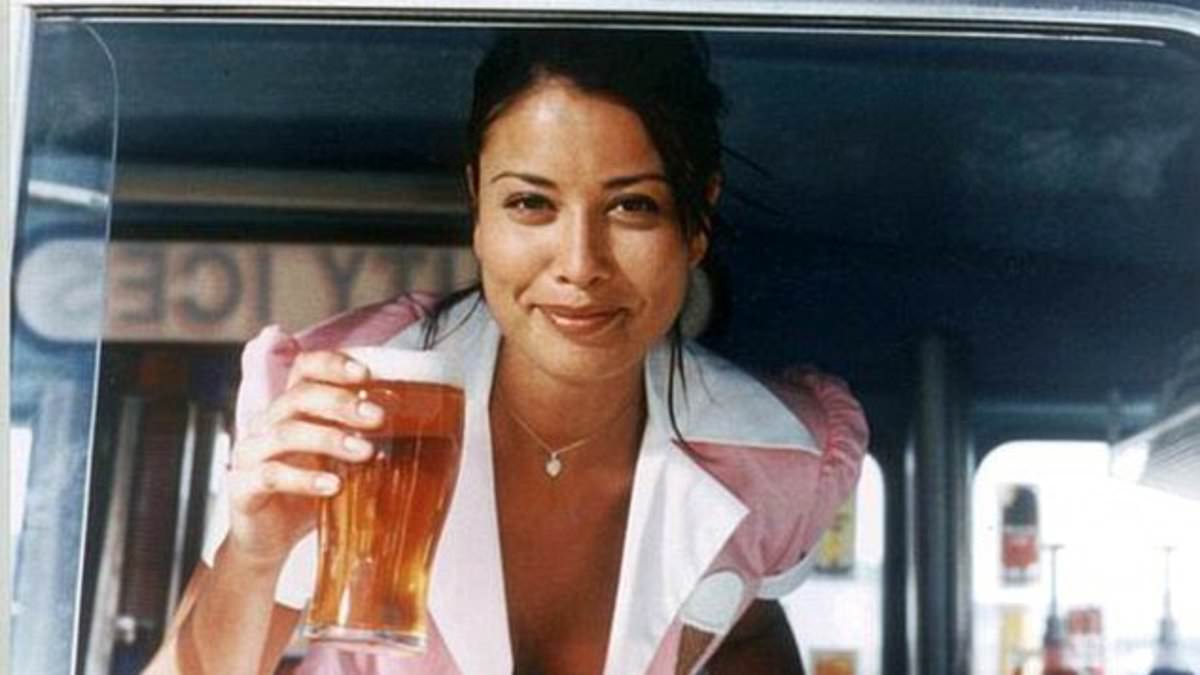A clampdown on alcohol advertising is being considered by ministers in a move that could spell the end of classic ad campaigns, it has emerged.
In the latest sign of expansion of the ‘nanny state’, the Government confirmed it is looking at introducing ‘partial restrictions’ on booze ads among measures in its 10-year health plan.
A draft of the document, due to be released next week, also suggested introducing new restrictions on licensing hours for shops and introducing Scottish-style minimum unit pricing.
But Government sources yesterday ruled out these measures – though confirmed they were looking at curbs on alcohol advertising.
The exact details of what the restrictions would look like have not been finalised.
The move, however, could spell the end of classic advertising campaigns for popular brands such as Budweiser and Guinness.
Decades on and the commercials are still being talked about – with many of the slogans becoming more iconic than the drinks.
One 1993 Boddingtons advert was even said to have ‘changed Manchester’ after the city’s canals passed for Venice.
It comes as critics today lambasted the prospect of a clampdown, and accused Labour of trying to ‘hammer the final nail into the coffin’ of the pub and beer industry.
The advertising restrictions could mirror those for junk food, which are due to come into force in January – having been repeatedly delayed.
It will mean adverts for ‘less healthy’ food and drink are banned before the watershed on TV, along with a total ban on paid-for online ads for junk food.
The proposals, first revealed by Sky News, are expected to form part of Health Secretary Wes Streeting’s 10-year health plan, which he will unveil next week.
Reform UK leader Nigel Farage told the Mail last night: ‘If the pub and beer industry hadn’t suffered enough, Labour are trying to hammer the final nail into the coffin.’
And Tory shadow health minister Dr Caroline Johnson said: ‘A complete ban on alcohol advertising would be absurd nanny statism from the Labour government.
‘The Labour government should focus their attention on delivering NHS reform and finishing their 10 year plan, not wrapping up business in more red tape and regulations – particularly as they face their disastrous Jobs Tax and the looming spectre of the Employment’s Rights Bill.
‘The Conservatives, under Kemi Badenoch’s leadership, will always stand for common sense, and against government overreach. Labour should urgently set out what evidence there is for such a measure.’
It comes as Brits have reminisced over some of the most iconic alcohol adverts over the past few decades.
Twenty five years ago, Manchester passed as Venice in a classic ad for Boddingtons beer.
In the clip, two gondolas – one with a man in and another with a woman in – can be seen drifting towards each on the water.
The young man can be seen holding something that looks like an ice cream and at the moment viewers think she is about to go in for the kiss, she steals his pint.
Boddingtons entertained viewers again in 1996 with an iconic advert starring Mel Sykes.
The former I’m A Celebrity star seductively handed an athlete a pint of beer while working in an ice-cream van, dressed in a plunging pink frock.
The advert went on to launch Mel’s career in TV.
Meanwhile, comedian Peter Kay fronted John Smith’s ‘No Nonsense’ TV ad campaign from 2002 to 2005 .
In one iconic clip, he sent his sprightly 55-year-old mother to an old people’s home so he can ‘put a snooker table in her room’.
For many, the well-known ‘whassup’ Budweiser ad was a cultural hit imitated in parties, bars and school lunchrooms across the country in the early 2000s.
The 1999 Super Bowl commercial opened with Charles Stone III watching a game on TV while drinking a Budweiser beer before he got a phone call from friend Paul L. Williams, who was doing the same.
Then walked in Fred Thomas Jr. wearing a bright yellow jersey, who asked Stone the now-famous line: ‘Whassup?
Stone replied the same line, sticking his tongue far out of his mouth, before telling Thomas to pick up the landline phone. The same exaggerated catchphrase was then repeated… well, repeatedly, before he asked: ‘Where’s Dookie?’
The camera then cut to Scott Martin Brooks, who was typing away at a clunky old desktop computer.
‘Yo?’ Brooks answered, prompting Thomas to call out the inside joke again. A chorus of ‘whassup’ filled the phone line by the real-life friends, and the rest is TV history.
A Department for Health and Social Care spokesman said last night: ‘The 10-year health plan will not include a ban on alcohol advertising.
‘We are exploring options for partial restrictions to bring it closer in line with advertising of unhealthy food.’
Last month a report warned that freedoms in Britain are declining at a faster rate than almost anywhere else in Europe.
The ‘nanny state’ index ranked the UK as the 7th worst place on the continent to eat, drink, smoke and vape.
The index, published by the Institute of Economic Affairs (IEA) and the European Policy Information Centre (EPICENTER), scored countries on how they regulate lifestyle choices.
As well as the junk food ad ban, other nanny state measures include a recent ban on sales of single-use or ‘disposable’ vapes – whether or not they contain nicotine.
Legislation is also making its way through Parliament which will ban tobacco sales to anybody born on or after January 1 2009.
And Sir Keir Starmer wants to introduce supervised toothbrushing for young children.
